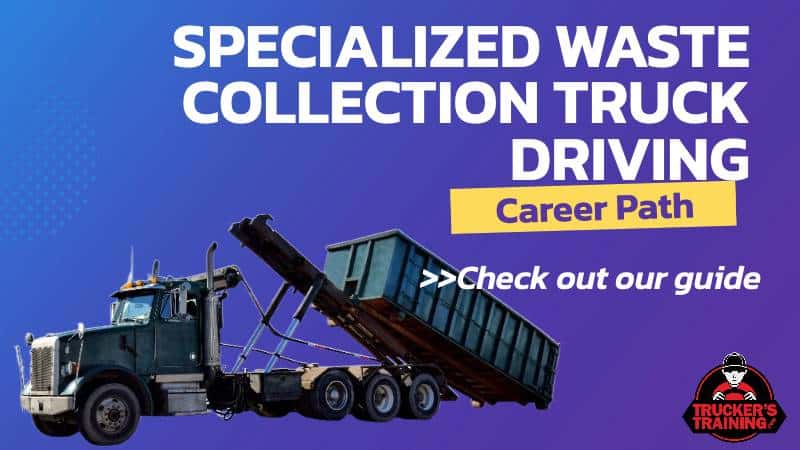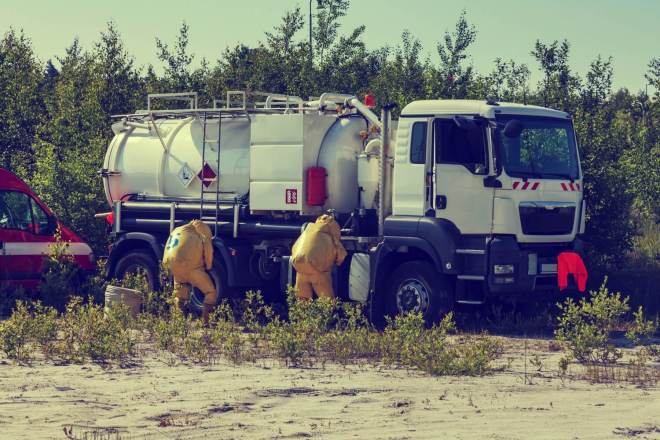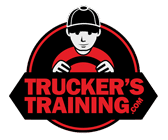Ever wonder about those massive trucks lumbering through your neighborhood at dawn, gobbling up trash and recycling? Meet your friendly neighborhood waste collection truck drivers. These highly trained pros maneuver behemoth rigs through tight streets and alleys to keep your city clean. It’s not glamorous work, but without these specialized truck drivers, waste and recycling would pile up fast.
Their job requires a special commercial driver’s license and training to operate heavy-duty vehicles like front loaders, side loaders, and roll-off trucks. Maneuvering quietly at early hours, waste collection truck drivers serve an essential role in public health. They collect residential and commercial waste for transport to treatment facilities and landfills. Despite the early hours and physical demands, many drivers find the job rewarding. After all, they provide an invaluable service to their communities and local environment.
Waste Hauler Driver
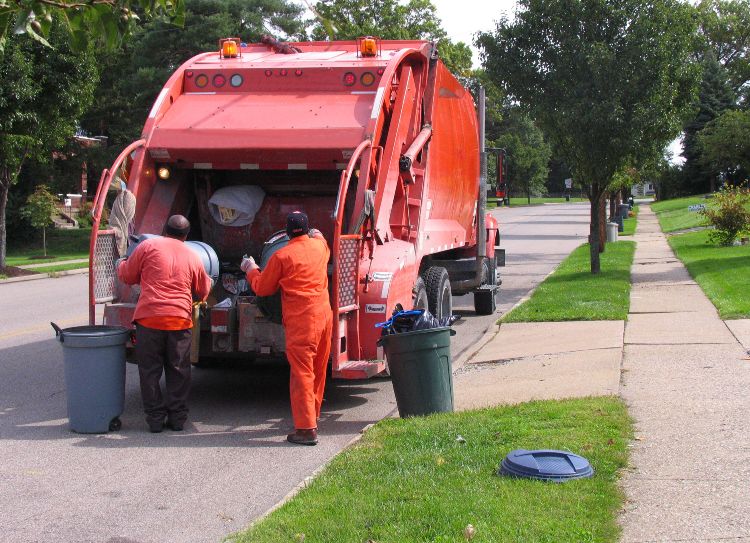
A waste hauler driver, or garbage truck driver, picks up residential and commercial trash and recycling. They operate the hydraulic equipment on specialized trucks to collect waste and transport it to sorting facilities or landfills.
As a driver, you’ll travel through neighborhoods and business areas on a set route, stopping frequently along the way. Using automated equipment, you’ll lift and empty waste bins into your truck. It’s a hands-on job, requiring physical stamina.
Key Responsibilities
As a waste hauler, your main responsibilities are collecting and transporting waste and recyclables to the proper facilities. You’ll operate heavy-duty trucks with specialized equipment like hydraulic lifts, compactors, and containers to collect residential and commercial waste. You may also lift and load bags, bins, and dumpsters of all sizes into your truck.
You’ll wear protective gear, properly secure loads, and follow all waste-handling procedures to avoid injury or contamination. Driving skills are essential too. You’ll navigate residential areas, highways, and access roads to transport materials efficiently between pickup points and drop-off locations like transfer stations, landfills, and recycling centers.
Job Requirements
To drive a specialized waste collection truck, you need:
- A commercial driver’s license (CDL) with endorsements for driving a heavy truck. The specific endorsements will depend on the type of waste you’re transporting.
- On-the-job training. Most waste haulers train new drivers before letting them drive solo. You’ll learn how to operate the truck and any equipment like forklifts.
- Physical ability. Collecting waste requires lifting heavy trash cans, climbing in and out of the truck cab, and walking over uneven terrain.
- Mechanical skills. Waste trucks can be complex vehicles with hydraulic lifts and compactors. Drivers often help with basic maintenance and repairs.
- Knowledge of waste management laws and safety procedures. You must follow regulations for transporting and disposing of different types of waste.
Salary
As a waste hauler, you can make a decent living. According to Ziprecruiter, the average pay for garbage collectors in the U.S. is over $44,000 a year. Actual pay will depend on factors like location, experience, type of waste collection, etc.
Working as a waste hauler can provide a stable income and career.
Job Outlook for Waste Haulers
The job outlook for waste haulers and waste collection truck drivers looks steady. Employment of refuse and recyclable material collectors is projected to grow 0.48 % year after year.
As the population continues to grow, the volume of waste increases, so more waste collection workers will be needed to pick up and transport trash and recycling. Many cities and towns are also expanding curbside recycling and compost pickup programs, which will create new driving routes and increase demand for drivers.
Hazmat Collection Driver
A Hazmat truck driver collects hazardous waste and transports it to disposal sites. These specialized drivers handle dangerous goods that require specific handling and containment.
Key Responsibilities
As a hazmat collection driver, you have several key responsibilities:
- Safely operate a specialized waste collection vehicle to pick up hazardous waste from residential and commercial sources.
- Strictly follow all Department of Transportation regulations for handling, storage, and transport of hazardous materials.
- Inspect hazardous waste containers for leaks or damage and ensure they are properly sealed and labeled before loading onto the truck.
- Deliver the hazardous waste to a designated disposal, recycling, or a treatment facility.
Job Requirements
Hazardous materials drivers are usually required to have a GED at the minimum. Certain employers require an Associate’s or Bachelor’s Degree in Science-related fields. In other instances, companies may require their employee to complete the OSHA HAZWOPER (Hazardous Waste Operations and Emergency Response Standard), which train you on health hazards, site safety, identifying hazards, decontamination and protective equipment.
Hazmat drivers are required to have their Class A CDL, however, there are Class B driving positions available where you’ll be operating a box truck.
In addition, Hazmat truck drivers are required to pass the HAZMAT written test to have the hazmat endorsement (H) added to their license. And if you’re operating a tanker truck, then you’ll need to have your tanker endorsement (N). To get both tanker and hazmat endorsement (X), you’ll need to pass a written exam, which tests your knowledge surrounding both tanker and hazmat transportation.
Salary
As a hazardous materials collection driver, you can expect to earn an average salary of around $68,000 in the US. Salaries are often higher in large cities and industrial areas where there is greater demand for hazardous waste removal and disposal. Rural or less populated regions may pay slightly less.
Job Outlook for Hazmat Collection Drivers
The job outlook for hazardous materials collection drivers is positive. Employment of hazardous materials removal workers is projected to grow by 7% over the next decade.
Roll Off Driver
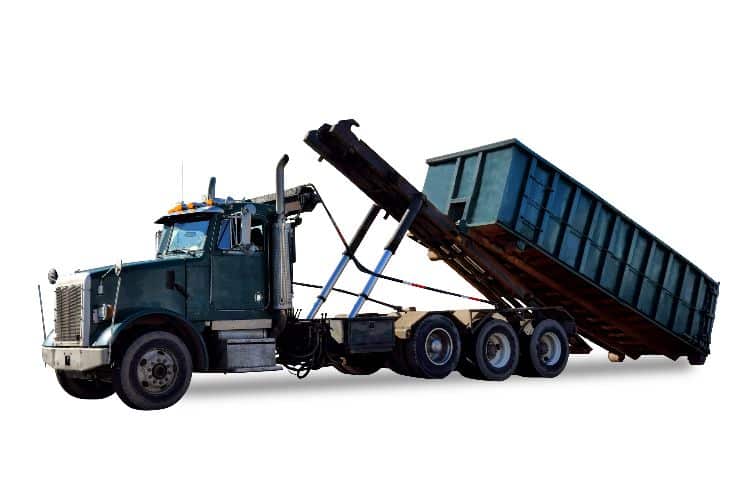
As a roll off driver, you operate a specialized waste collection truck to pick up and transport roll off containers. Roll off containers, also known as dumpsters, are large waste containers that can hold up to 40 cubic yards of waste.
Key Responsibilities
As a roll off truck driver, you have several key responsibilities to keep the waste collection process running smoothly.
Make sure your roll off truck is in working order by conducting routine inspections of the engine, brakes, and hydraulic lift. Check that the roll off containers are securely attached before heading out on your route.
Operate the hydraulic lift to load and unload the heavy roll off containers. Transport the loaded containers to the disposal site or processing center. Then bring empty containers to customers who need waste or recycling pickup.
Take the loaded roll off containers to the appropriate disposal site, whether that’s a landfill, incinerator, recycling center, or waste processing plant. Unload the containers for disposal and return them with empty ones to continue servicing your customers.
Job Requirements
To work as a Roll Off Driver, you’ll need to meet several requirements:
- A commercial driver’s license (CDL) Class A or B, with the proper endorsements to operate a roll off truck. Depending on what you’ll be driving, you may be required to get your tanker and/or hazmat endorsements.
- A GED or high school diploma.
- Basic mechanical skills to perform routine maintenance and emergency repairs.
- The ability to operate heavy equipment like roll off containers, compactors, and hoists.
- Good customer service skills to interact with clients and coworkers.
- Physical stamina and strength to lift heavy objects, climb ladders, and work long hours.
- Ability to sit for long hours.
Salary
As a roll off driver, you can make some decent money. Roll off drivers, who pick up and transport specialized waste collection containers, earn an average of $65,619 per year in the U.S. The more years under your belt, the more you’ll get paid. Experienced drivers can make over $84,000.
Job Outlook for Roll off Drivers
The job outlook for roll off truck drivers looks quite promising over the next decade. There’s an increasing demand for waste collection services. Roll off driver jobs are expected to grow by 5 percent from 2018 to 2028.
Transfer Driver
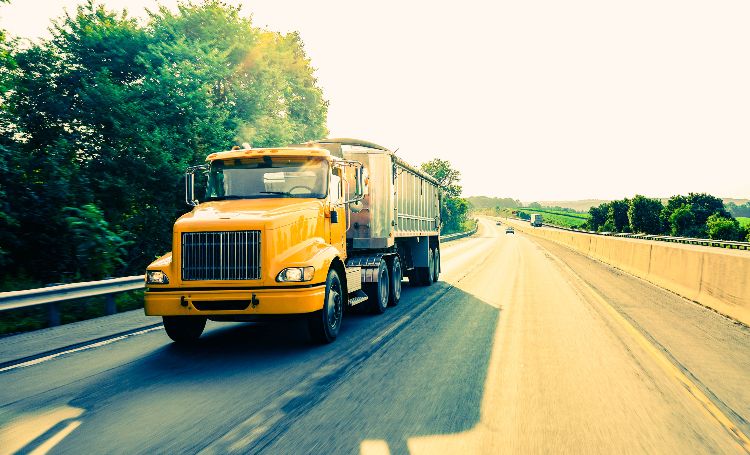
Transfer drivers transport waste and recyclables between collection routes, landfills, and processing facilities. As a transfer driver, you’ll drive a heavy-duty truck to collect waste from residential and commercial routes, then transport everything to a central facility.
Key Responsibilities
Your main role is managing the transfer of waste from collection vehicles to the transfer trailers for transport to disposal sites. You’ll operate heavy equipment like front-end loaders to move waste between vehicles and compact it for maximum trailer capacity. You’re also responsible for inspecting loads for hazardous or unauthorized materials before transferring the waste.
Job Requirements
Qualifications for becoming a transfer driver include having a valid driver’s license and a diploma. This career also requires different licenses depending on the job you do. For a driver of a vehicle that is heavier than 13 tons, you will need a CDL class A. However, you need to have a CDL Class B license in order to operate box trucks or buses.
For this position, it is also important to have the ability to navigate a specific city or region. You might also be required to physically load and unload the cargo.
Salary
As a transfer driver, you can expect to earn an average salary of around $50,105 a year in the U.S. Actual pay will depend on factors like years of experience, level of training and certifications, and the company you work for.
Job Outlook for Transfer Drivers
The job outlook for transfer station truck drivers looks steady. Dump truck driver jobs are projected to grow 5% from 2018 to 2028. While the overall employment of truck drivers may decline due to automation, the specialized nature of this role makes it less susceptible to replacement by self-driving vehicles.
Conclusion
So there you have it. The unsung heroes of our cities and towns who keep the waste under control and our streets clean. The job certainly isn’t glamorous, but for those with the skill, patience, and stomach for it, driving a specialized waste collection truck can be a stable career with good pay and benefits. Of course, it requires long hours, strict schedules, and dealing with, well, garbage. But for the right person, helping maintain the health and cleanliness of a community in this hands-on way can be a source of pride.

Sasha is a freelance writer for TruckersTraining.com and an entrepreneur. She has 10+ years experience as a writer with expertise in the transportation, business and farming industry. She is a wife, a mother, and co-owner of DreCampbell.com.
